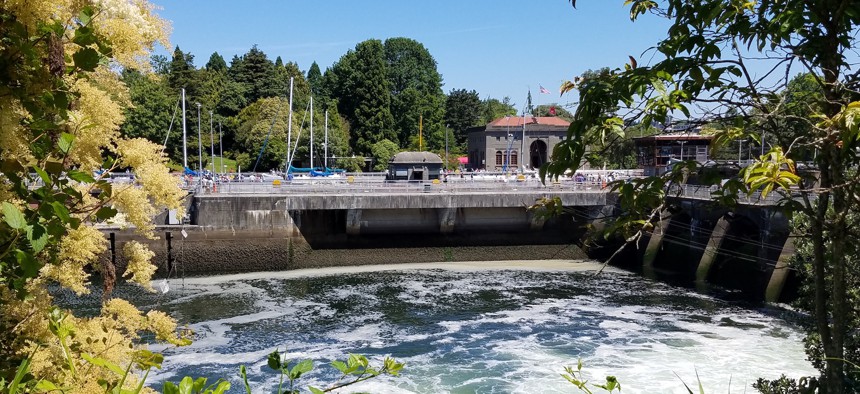Connecting state and local government leaders
PHOTOS: The Ballard Locks in Seattle were an American engineering triumph when they opened a century ago and there’s plenty of other critical infrastructure and economic activity that continue to rely on this waterway.
SEATTLE — Under mostly sunny skies, two military jets flew over the Hiram M. Chittenden Locks on July Fourth to mark the centennial celebration of the nation’s busiest set of locks, which connect the saltwater of Puget Sound with the freshwater Lake Washington and its ship canal.
The Ballard Locks, as they’re often called, along with the adjoining Carl S. English Jr. Botanical Garden, are the most popular tourist attraction in the Emerald City but the federal facility wasn’t necessarily built as a scenic place for visitors to watch boats and salmon migrating through the fish ladder. The locks, which were built and continue to be overseen by the Seattle District of U.S. Army Corps of Engineers , have played a vital role in supporting Seattle’s local maritime industry that relies on the ship canal.
That includes the historic Pacific Fishermen Inc. Shipyard , which was bought by 400 Norwegian-heritage fishermen and their families in 1946 and continues to be operated as a co-op by their descendants. (This writer recently had a chance to explore the shipyard during a fundraiser for the Nordic Heritage Museum.)
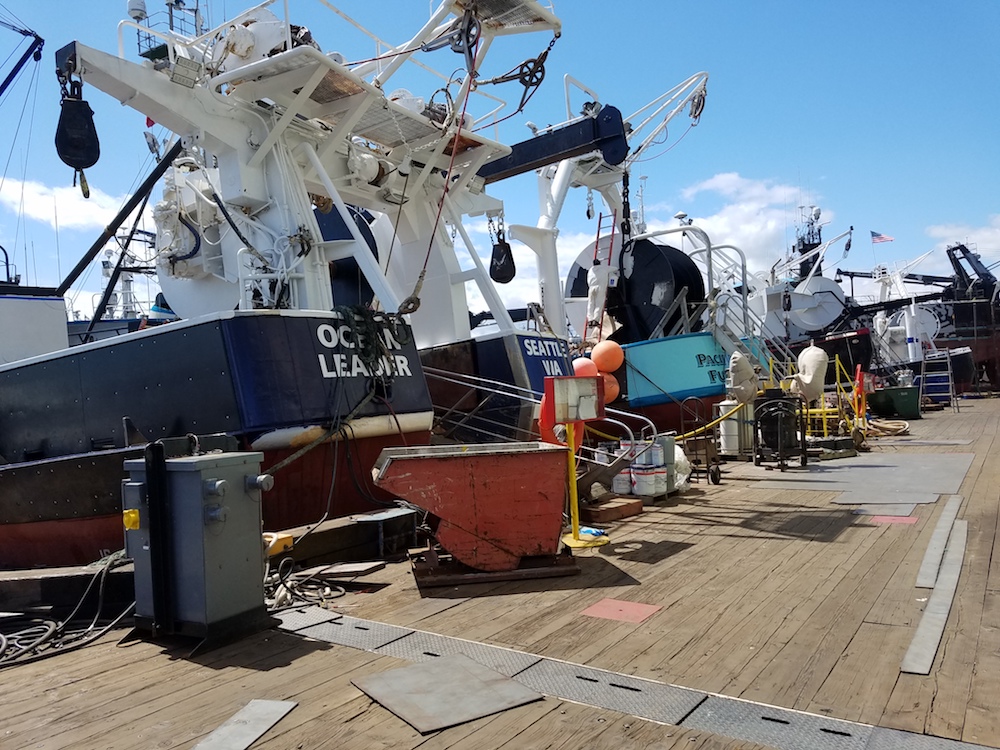
“The safe and efficient operation of the Ballard Locks supports $1.2 billion in total lock-related economic activity, more than 3,000 full-time jobs, and more than 1 million tons of freight,” U.S. Sen. Maria Cantwell said in remarks entered into the Senate Record on June 30.
This past weekend in a continuation of the centennial, Seattleites lined the ship canal and the shores of Lake Union to see a parade of historic boats carrying passengers and crews dressed in period costumes.
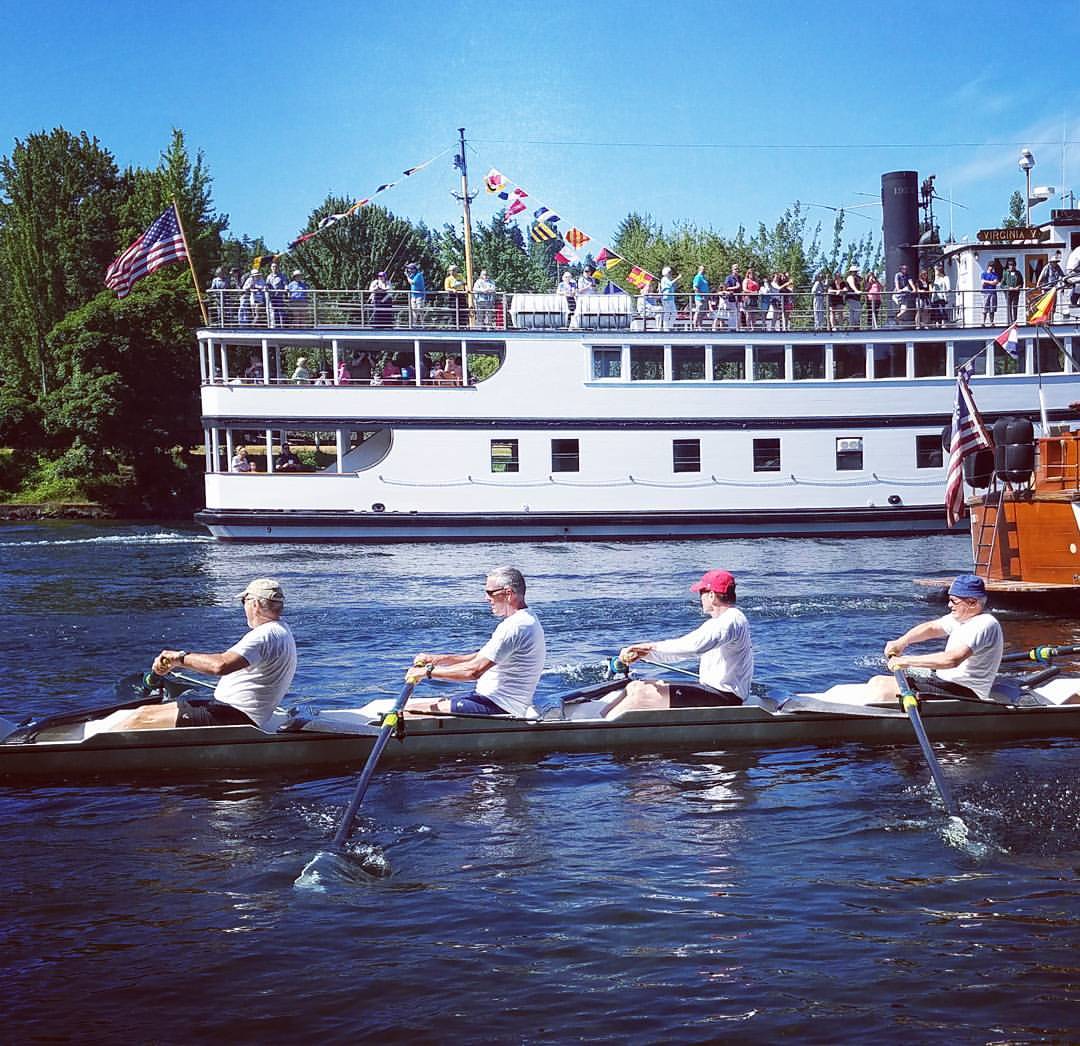
While the forces of glaciation largest formed Lake Washington and Lake Union, both major features of Seattle’s hourglass-shaped geography, they’re bodies of water carefully maintained by the Army Corps, one of the many engineering feats that dramatically reshaped the local terrain , including the removal of massive hills to create level land for Seattle to grow into the Pacific Northwest’s largest city.
The massive engineering project, which was officially put into service 100 years ago, replumbed how Lake Washington and the rivers that feed it drain to Puget Sound. Through a large cut dug through a natural isthmus near today’s Husky Stadium, Lake Washington was lowered by 9 feet to the level of Lake Union . Those connected lakes were linked to Puget Sound via the Fremont Cut, Salmon Bay—a tidal inlet that became freshwater—and the Ballard Locks.
All this has given Seattle an advantage over other Pacific ports when it comes to servicing commercial fishing fleets. Because Seattle has freshwater port facilities, including Fishermen's Terminal, in addition to saltwater port facilities for oceangoing vessels, fishing vessels flock to Salmon Bay for repair work and other maintenance work because saltwater bodies are more corrosive to hulls.
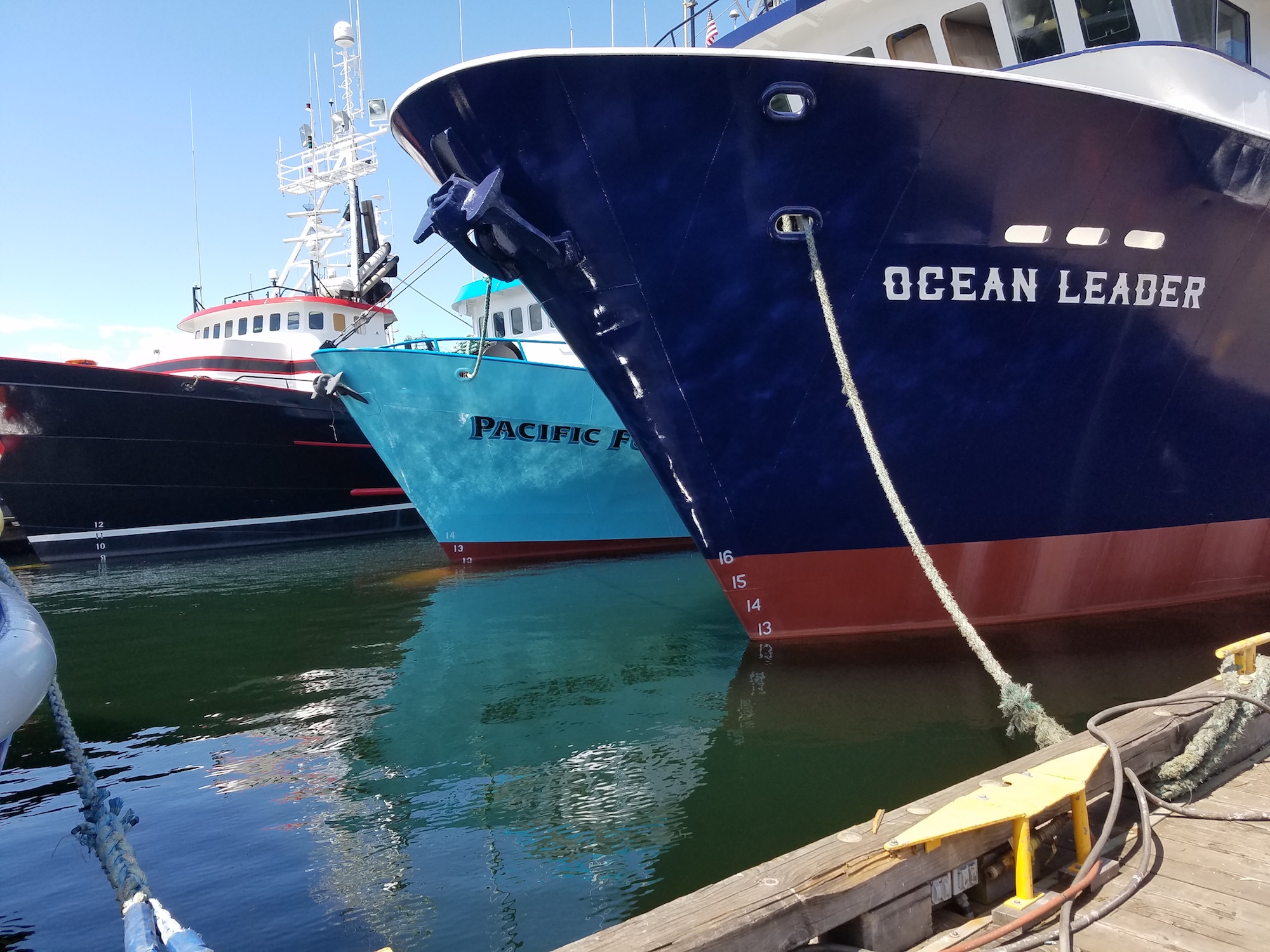
In the process of creating this freshwater harbor and connected network of lakes and waterways, fish migration patterns and the Native American communities that were built around them were quickly disrupted when the level of Lake Washington fell below its previous drainage outlet, the Black River.
A fish ladder was constructed at the Ballard Locks to help restore migration routes and boost salmon populations. But those efforts, which involve multiple intergovernmental stakeholders including the Army Corps, are very much still a difficult work in progress.
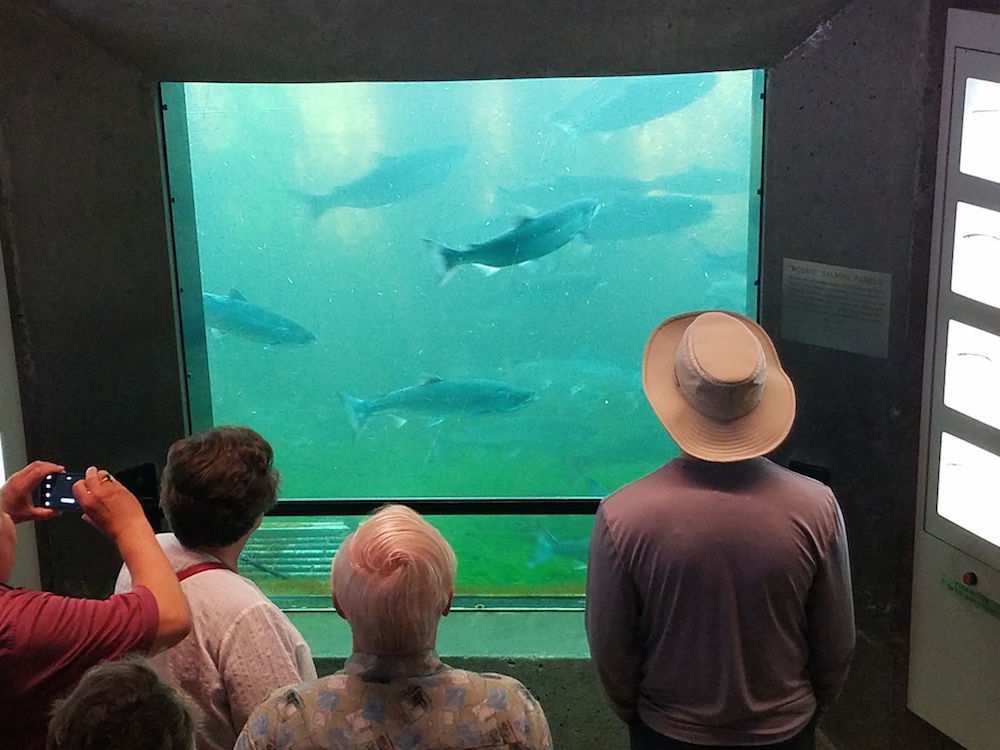
While there have been proposals and other efforts to remove some massive hydroelectric and water management projects in the Pacific Northwest along the Columbia and Snake rivers supported by tribes and environmentalists, nobody in Seattle has seriously talked about reversing Lake Washington’s now 100-year-old replumbing project. It’s almost unfathomable to think about the foundations of modern Seattle, without the locks and ship canal.
There’s a lot riding on the locks and spillway maintaining a consistent range of water levels for Lake Washington, Lake Union and Salmon Bay. That includes houseboats, shipyards and other maritime facilities. But that also includes important bridge structures that are built atop floating pontoons that carry the Interstate 90 and State Route 520 expressways and a future Sound Transit light-rail line over Lake Washington.
U.S. Rep. Pramila Jayapal said in her July 4 remarks that it’s important to remember the history of the Ballard Locks in context of native communities disrupted by Seattle’s massive replumbing project. Still, Jayapal, a progressive Democrat who has championed marginalized and disadvantaged populations in her district, noted the vital role the locks have played in supporting the economy of Seattle, King County and Washington state.
Jayapal said she is working with her colleagues in Congress to try to secure additional—and badly needed—federal resources for the locks, which like so many other examples of critical infrastructure in the United States, are aging.
Many of the systems, machinery and equipment are original and have had their lifespans extended through Band-Aid repairs and clever fixes. The U.S. Army Corps maintenance to-do list for the locks is lengthy and there haven’t been enough resources to make needed upgrades and improvements. Design work, however, has been underway in recent years to replace the pump plant, which currently features original cast-iron machinery, which has deteriorated, as this video recently published on the Seattle Channel details:
While the July 4 ceremony focused on the centennial of the locks and the Lake Washington Ship Canal and its engineering accomplishments, elected officials noted the need for more federal support to build and maintain the nation’s infrastructure.
As the Trump administration’s infrastructure agenda remains a work in progress, Seattle Mayor Ed Murray noted during the ceremony that it would be difficult to build something like the Ballard Locks “without a strong and functioning federal government,” a subtle reference to ongoing political turmoil in Washington, D.C., a situation that he, like many big-city mayors, has expressed frustrations over.
During his remarks at the ceremony, Col. John Buck, the Seattle District Commander for the U.S. Army Corps of Engineers, steered clear of any political discussions, but stressed the national importance of infrastructure investments for supporting economic development and commerce and the critical role of the Army Corps plays.
Some Army Corps stats stood out during the ceremony: For every $1 in investment in the U.S. Army Corps’ Civil Works program, there’s $16 in economic development. And $5 goes to the U.S. Treasury.
While the Army Corps has been criticized over its management of many of the nation’s waterways , like the Mississippi River, it’s hard to discount the return on investment associated with the Ballard Locks and Lake Washington Ship Canal.
After 100 years is service, this engineering feat has left their mark. But the systems that have supported them for a century need to be overhauled. Will there be enough federal support to maintain them for another 100 years?
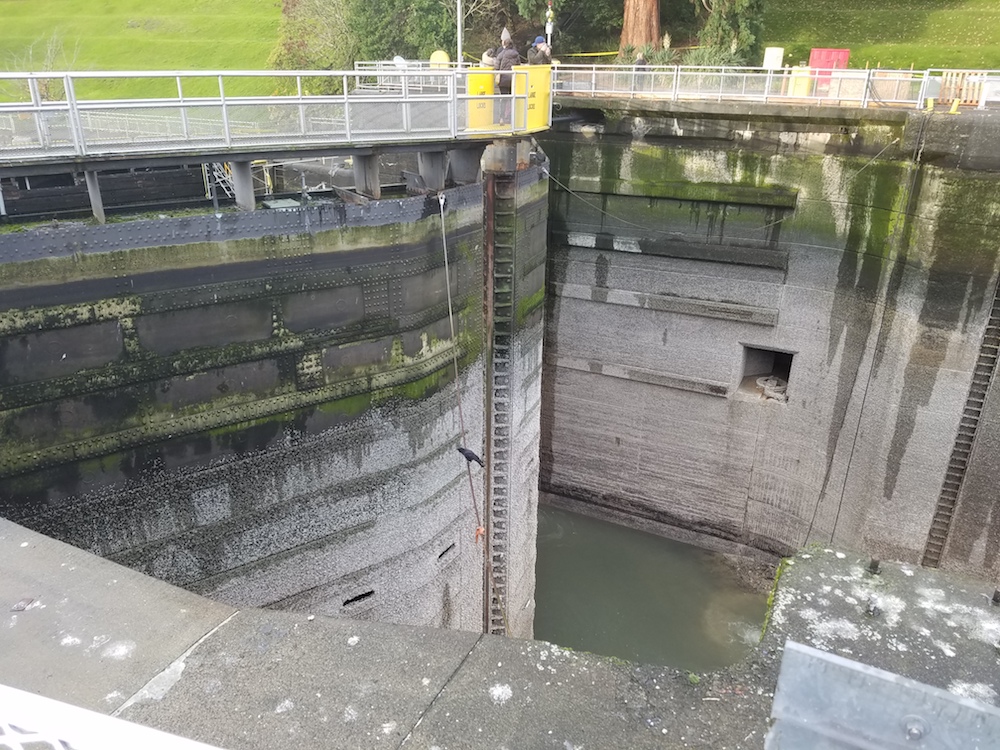
Michael Grass is Executive Editor of Government Executive’s Route Fifty and is based in Seattle.

NEXT STORY: Denver Mayor: ‘Development Can Serve Our Needs, Not Victimize Us’
